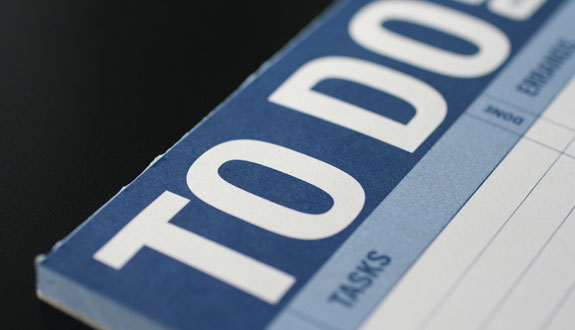
So we’re five and a half weeks out from the test at this point. For those of you out there who have been studying for the last month or two, good things are probably beginning to happen. Logical Reasoning is becoming more and more manageable, and you may be finding yourself seeing the correct answers quicker and with more consistency. That’s all awesome, so give yourself a high five if you’re in that boat (which I guess would just be clapping above your head).
If you’re like many people, however, you may be finding the Reading Comprehension section to be the most unyielding to improvement. During every class I teach I start to hear this complaint right about now. There are many reasons for this, so I’m going to outline some strategies that you should be using.
First of all, you’re probably just being stupid. I don’t mean that you are actually stupid, but the majority of the conversations I have with worried students go something like this:
Whining Student: My reading comp isn’t getting better!
Colin: How’s the homework been going?
Student: Well…
Colin snatches up Student’s book and starts thumbing through it, quickly realizing that, while LR is complete, she has done less than half of the RC.
Colin (incensed): What the hell is this shit…
Student (defensively): Well, I do LR first, because it’s not as boring, and then sometimes I just run out of time…
Colin strikes Student to the floor with her own book, then lights her on fire.
Colin (to the rest of the class): Let this be a lesson to you all.
A student in the back begins to sob.
The moral of the story is that if you don’t do lots of practice, you won’t get any better, and you may get burned to death. If this has been you, you need to start putting in way more RC time immediately. This may sound obvious, but if it’s a harder section for you, you should be practicing more, not less. Also, RC does tend to be the section where improvement is the most gradual, so you can’t try to cram in the last couple weeks. Getting better at RC is much like building any muscle; you have to work at it every day for a long time. It’s not like you could just hit the gym for 48 hours straight and come out looking like a bodybuilder. You’d come out dead. Same thing here. Sort of.
Also, you can’t let the fact that you find RC to be less interesting than soccer stop you from doing it. Since you can’t just decide not to do RC on the LSAT because it’s boring (well, I guess you technically could), you shouldn’t do that in your homework. Try to get excited. At least you’re not watching soccer. What a terrible sport.
But moving on. The biggest problem people tend to have, which they are always surprised to hear, is that they go too quickly. I have to address this with my students time and time again. There are a few things to consider when thinking about speed.
First of all, you can’t rush the passage itself. If you don’t know what you just read, the questions will all be incredibly hard, and any time you thought was saved by trying to read quickly will be lost as you take a long time to answer the questions. You absolutely cannot skim. If there is ever a sentence you read that you didn’t understand, reread it. If there’s a whole paragraph you didn’t get, reread it. If you don’t, they’re going to ask about it later, and you’ll just have to go back and reread it then anyway, which is going to take longer. By the time you’re finished reading it, you should comfortably be able to say what the conclusion of the whole passage is, as well as the reason the author wrote it, and what the author’s attitude is. If you can’t, your reading probably wasn’t thorough enough.
Secondly, you can’t rush the questions themselves. After investing all the time in reading the passage itself, you’re throwing away points by not putting in the time on the individual questions. If you did a good reading of the passage itself, some of the questions might be pretty quick to answer, such as those about the author’s main point or general attitude. But some of them, such as specific reference ones which require you to look back, will take longer. It can feel like you’re taking too long on these, but there is really no such thing as “too long.” You have to take as long as you need to make sure you’re getting them right.
But, comes the next question, don’t those two things slow you down? Well, yes. But that’s not really a bad thing, in and of itself. Let’s say right now you can finish all four passages, and you’re averaging one or two misses per passage. So for the whole RC section you would be missing about six. Which is great. That would be averaging 8:45 per passage. But let’s say you instead tried doing only three passages and totally skipping one. Now you would have 11:40 per passage. That’s nearly three minutes extra on each one, an eternity when it comes to RC. With that extra time, you would almost certainly be getting 100% accuracy. What you would do is skip the one with the fewest questions (usually five), and of those five misses, you would probably get at least one guess right. So now you’re missing a total of four, instead of six.
The whole idea of not completing the entire section can sound terrifying, but just looking at the numbers many students find that this can be a lot better and translate into a higher score. Also, if you adopt this strategy, taking as long as you need to be getting everything right, you will slowly get faster and faster at it, pushing down that 11:40 time, allowing you to hit the fourth section. I’m not saying that you shouldn’t do the fourth section, just that you shouldn’t feel like you need to.
So the whole question of how to get faster is kind of missing the point. What matters is how can you get the most answers correct, and that generally entails going slower, at least at first. Building up speed from there is really about practice, practice, and then more practice. So do your reading comp, do it thoroughly, do it often, do it carefully, and you’ll have great things happen. Don’t do it at all, and you’ll go to business school. Not that there’s anything wrong with that.




